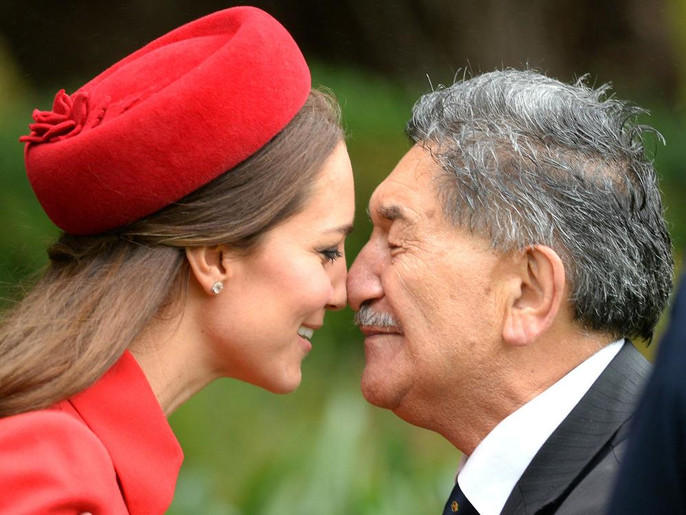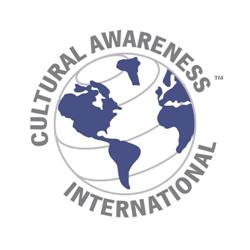![]() We do it all the time; we meet new people at work, school, conferences, social mixers, and beyond. We offer our hands, close our grip briefly, and then let go. For many of us, handshakes are the only way we know to greet someone. It is taught and reinforced time and again. Handshakes, therefore, are a cultural norm and tradition. Their perfunctory nature for many North Americans is so ingrained that we rarely give it a second thought. What if that simple act of a handshake, however, is rude and offensive? What if some cultures perceive physical touch between strangers as flirtatious and ill-mannered?
We do it all the time; we meet new people at work, school, conferences, social mixers, and beyond. We offer our hands, close our grip briefly, and then let go. For many of us, handshakes are the only way we know to greet someone. It is taught and reinforced time and again. Handshakes, therefore, are a cultural norm and tradition. Their perfunctory nature for many North Americans is so ingrained that we rarely give it a second thought. What if that simple act of a handshake, however, is rude and offensive? What if some cultures perceive physical touch between strangers as flirtatious and ill-mannered?
Worldly Greetings
Different cultures have different methods of greetings. From cheek kissing and bowing to the lesser known nose-rubbing in Bedouin cultures and Tibetan Monks who stick their tongues out. Greetings are as varied, nuanced, and intricate as just about anything else in this world. Recognizing that there are multiple explanations for nonverbal behavior allows us to expand our worldview and cultural understanding. This awareness is part and parcel of what many consider to be a Global Mindset and it is a fundamental component to cultivate for international business.
Acumen in Business
International business requires an additional layer of insight precisely because of the added hurdle of culture and language. Recognizing local customs and norms complements every savvy businessperson and enables them to succeed further in the diverse global landscape. Mercedes Naficy D’Angelo, Cultural Expert and CAI’s Director of Global Business Solutions, considers greeting across cultures, “as the foundation of which relationships will grow from.” Moreover, not only do they set the tone of future business relationships, but they are the soil for which harmonious relationships will bloom in moving forward.

Of course, we all recognize the importance of first impressions, but beyond that initial greeting, social faux-pas may result in damaging credibility and hampering the ability to build meaningful professional relationships. Certainly, D’Angelo states, “greetings are a brief moment in time which one can recover from with some due diligence.” Nevertheless, it is worth understanding one’s counterpart and attempting to greet them in their custom or culture because it shows goodwill and an inclination to global competency.
How CAI Can Help
Global competency, the ability to navigate cross-cultural differences to communicate efficiently, is a crucial determinant of international business success. All aspects of business, including relationship building and problem-solving, are impacted by culture. Cross-Cultural Training has become a standard component in talent management and development strategies of many leading organizations. Understanding different cultural interactions and business styles enhance team cohesiveness and effectiveness across all corporate functions. Find out more about our services.
About CAI
 CAI has close to three decades of remarkable history working with HR and Business Leaders to create unique, personalized solutions that develop their employee talent to perform skillfully in the global marketplace. A woman and minority, privately owned and operated company, we holistically address organizational needs for global competency development, diversity and inclusion training, intercultural communication and global leadership with flexibility and innovation. Additionally, we provide comprehensive destination services that assist both assignees and their families in relocating to a new home and settling into their new community. Our experience collaborating with global companies across all industries and scope gives us invaluable insight to anticipate and address our clients’ needs. Our solutions target not only the needs of globally mobile individuals and their families but also that of teams and senior leadership. CAI’s expertise, creativity, and agility deliver the best sustainable solutions to hone and enhance the skills of your globally mobile talent. Find out more here.
CAI has close to three decades of remarkable history working with HR and Business Leaders to create unique, personalized solutions that develop their employee talent to perform skillfully in the global marketplace. A woman and minority, privately owned and operated company, we holistically address organizational needs for global competency development, diversity and inclusion training, intercultural communication and global leadership with flexibility and innovation. Additionally, we provide comprehensive destination services that assist both assignees and their families in relocating to a new home and settling into their new community. Our experience collaborating with global companies across all industries and scope gives us invaluable insight to anticipate and address our clients’ needs. Our solutions target not only the needs of globally mobile individuals and their families but also that of teams and senior leadership. CAI’s expertise, creativity, and agility deliver the best sustainable solutions to hone and enhance the skills of your globally mobile talent. Find out more here.


